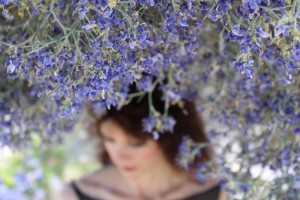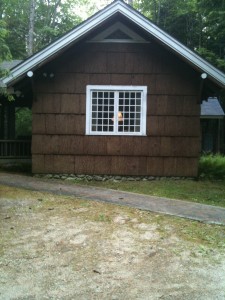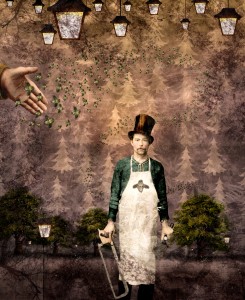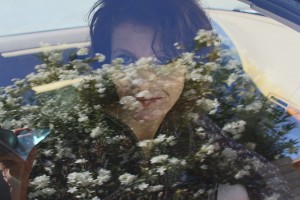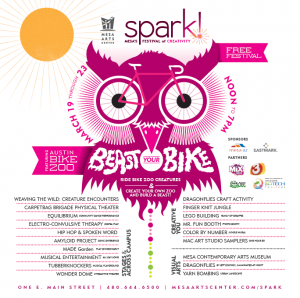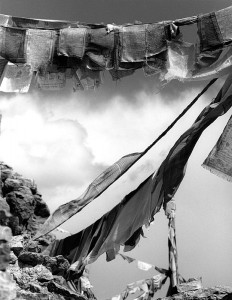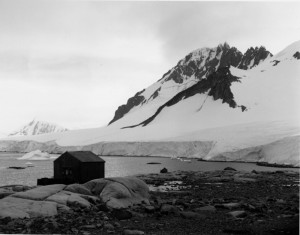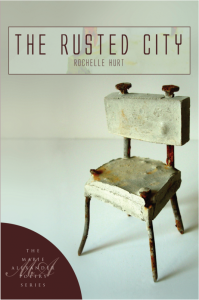Some time back, playing cricket, I slipped, injuring my neck. A slight muscle strain, at worst, or so I thought. Within days I was in agony, acute muscle spasms, unable to sleep and a redundant left arm. After a prescribed dose of hallucinatory pain killers failed to have the desired effect, I ended up in hospital, and eventually, on traction.
Before being strapped up to it, I was informed by the physiotherapist that the machine was rarely used. I later discovered he actually had to dust it down and read up on how to use it.
It was, in medical terms, a last resort. Several intensive weeks, and much stretching later, it had worked a treat. Not only did I feel better than I had for a long time but I was also five centimetres taller.
I was told the height thing wouldn’t last. As it turned out, neither did.
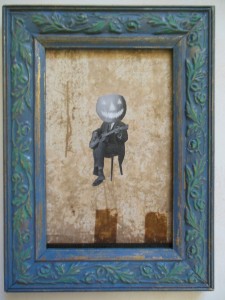 Fast forward to this past November. After struggling for three days with a painting that should have taken me three hours, I woke with the same pain I had until then completely blanked from my mind. I was immediately referred for another course of physiotherapy.
Fast forward to this past November. After struggling for three days with a painting that should have taken me three hours, I woke with the same pain I had until then completely blanked from my mind. I was immediately referred for another course of physiotherapy.
When I suggested traction, the doctor could not have looked more surprised if I had told him I was the Marquis de Sade.
I don’t think they still do that, he told me. He was right, they don’t. I resigned myself to what would be a lengthy healing process. Deep massage and stretching, hand work this time, and a list of exercises a page long. Pain killers if I couldn’t sleep. Which I couldn’t.
For a while, at least, painting was out of the question. I had to find something else to occupy my mind and time. Then it was, on a dark December day, that Annie Larsen came into my life. Squirreling through the dusty shelves of a second hand book shop I came across a wonderful, antique collection of song sheets and black and white lithographs. Images of a romantic, idyllic, rural England.
The music I didn’t recognise either. Unfortunately the pages were badly water stained and beyond repair, but the gilt card covers had a lustre and patina that only comes with being around for the best part of 200 years. I have always loved antiquarian books, old papers and ephemera, antique toys and photographs or just about anything that looks like it has a story to tell. Increasingly, I’ve been using such things in my art.
This would be the perfect addition. I parted with my £3.
Leafing through the pages further, I found the name Annie Larsen, inscribed in faded blue ink. The book was published in the early years of the nineteenth century, in London, though I had no way of knowing where Annie Larsen came from.
The name Larsen, a Danish-Norwegian patronymic surname, pronounced ‘La:sn, literally meaning, ‘son of Lars’. Though the most famous, or infamous, Annie Larsen I could find, certainly up to the mid twentieth century, was an American three masted schooner. Born in 1881 and dying an ignominious death when she ran aground in the South Pacific in 1918.
Might this explain the water stains?
There is record of a Annie Sophia Larsen being born June 29, 1847, in Denmark and entering the US through Canada, in 1881 or 1882. Though there is no record of her musical tastes, if any. The 1910 census data for Mishawaka Precinct, Clatsop Co. Oregon, lists a Annie Larsen together with her brother Willie and her sister Maggie, children of a farmer, John Charles Larsen and his wife Elizabeth. There even exists a Real Photo postcard of the three children, though I have yet to find it. Perhaps Annie, right there in the photograph, is holding her beloved book for all the world to see. What the world didn’t see was Annie dropping it some time after. Into a puddle. Or perhaps the duck pond. I can almost hear little Annie’s cries.
Overactive imagination.
Overaktiv fantasi.
Another Annie Larsen, born about 1879, in Utah Territory to Oluf Christian Larsen and Anna Maria Pederson, had no less than eight siblings. Orson, Oluf, Niels, Emelia, Johanna, Olevia, Olivia and Caroline. Though to date no known carriers of Annie’s ancestors’ mitochondria DNA have taken an Mt DNA test and no close relatives have taken a 23 and Me, Ancestry DNA or Family Tree DNA test.
Is the book the only link left to Annie Larsen of Utah Territory? Disappearing Object Phenomenon. Or DOPler Effect. In this case, Annie. There is also the Larsen Effect. A positive feedback which occurs when a sound loop exists between an audio input and an audio output. First discovered by the Danish scientist Soren Absalon Larsen, 1871-1957. Incidentally, the first use of feedback on a rock record is believed to be the introduction of ‘I Feel Fine’ by the Beatles, recorded in 1964. Another Beatles related fact, my son’s school is just across the road from the original Strawberry Fields.
I digress.
Jeg sidespring.
More research turned up a newspaper headline for October 22, 1930.
ANNIE LARSEN PASSES AWAY.
Spanish Fork – Mrs Anne M Larsen, 68, widow of Marinus Larsen died. Sunday night at the family home after an illness of several weeks from a complication of troubles.
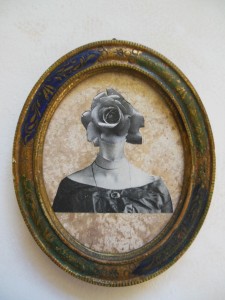 Of course, the Annie Larsen who dipped her pen and wrote her name with such a sure hand, could just as easily have lived within a two mile radius of where I sit now. Though I do like to picture her down on the family farm, beneath a big old tree, or better still, in a big old tree, over hanging the duck pond, singing like a meadowlark, imagining the country I call home. Maybe it’s because when I was a child, I too lived on a farm. Though we didn’t have a duck pond or for that matter, ducks. But we did have chickens, and lots of them. Which is odd, as my dear Mum had a life long fear of feathers and particularly birds.
Of course, the Annie Larsen who dipped her pen and wrote her name with such a sure hand, could just as easily have lived within a two mile radius of where I sit now. Though I do like to picture her down on the family farm, beneath a big old tree, or better still, in a big old tree, over hanging the duck pond, singing like a meadowlark, imagining the country I call home. Maybe it’s because when I was a child, I too lived on a farm. Though we didn’t have a duck pond or for that matter, ducks. But we did have chickens, and lots of them. Which is odd, as my dear Mum had a life long fear of feathers and particularly birds.
It wasn’t the birds themselves she feared so much, as the thought of one getting inside the house. Mum was Dublin born and bred and as superstitious as they come. She would take great delight in telling how a bird flying in to the house was a sure sign of a death.
So any windows were kept firmly shut. But people still died. My Mum being one of them.
Strangely, on the drive home from the hospital, in the middle hours of that night, an owl flew right across the path of the car, staring clear in our direction, before disappearing into the darkness.
That was odd, my wife said.
I said, do you think it was Mum?
Reincarnated as a bird. And not just any bird but the one most associated with death. Do things work that fast in the afterlife? And if so, with such perverse humour?
Actually, not all owl stories are bad. Afghanistan legend states it was the owl that presented humans with flint and iron to make fire. In return man gave owls their feathers. To the Inuit of Greenland, the owl is a symbol of guidance and help. And my favourite, the Aborigines of Australia believe owls are the spirits of women and are therefore sacred.
Perhaps Annie Larsen had a fear of birds and never went near a duck in her life. Maybe it was a bird landing in the tree she was sitting that caused her to drop her book in the pond. Though why she would be sitting in a tree if she were afraid of birds, I do not know.
Surprisingly, to me at least, I read that Anatidaephobia is the fear that you are being watched by a duck. Individuals believe that no matter where they are, or what they are doing, they are being watched by a duck. Hard to imagine, I know, unless one’s earliest memory is being woken by an Eider pecking at one’s eyes. That could be one reason, though I am sure there are many more, much too horrible to contemplate.
Maybe ducks too have phobias. Sitiophobia is a fear of food though the Greek root suggests it ought to be fear of bread or grain. I can not imagine a worse phobia for a duck to have. Except perhaps Pteronophobia, a fear of feathers.
You weren’t alone Mum.
I digress again. Jeg sidespring igen.
So, Annie Larsen. Annie ‘La:sn. Of the faded blue ink. Farm girl. Daughter. Sister. Postcard subject. Who sang from tree tops. Pioneer spirit. Wife. Widow. With your complication of troubles.
What would I have done without you? And your precious book. Which I confess, I cut up. Its gilt, stained covers a blank canvas. And you, my inspiration.
